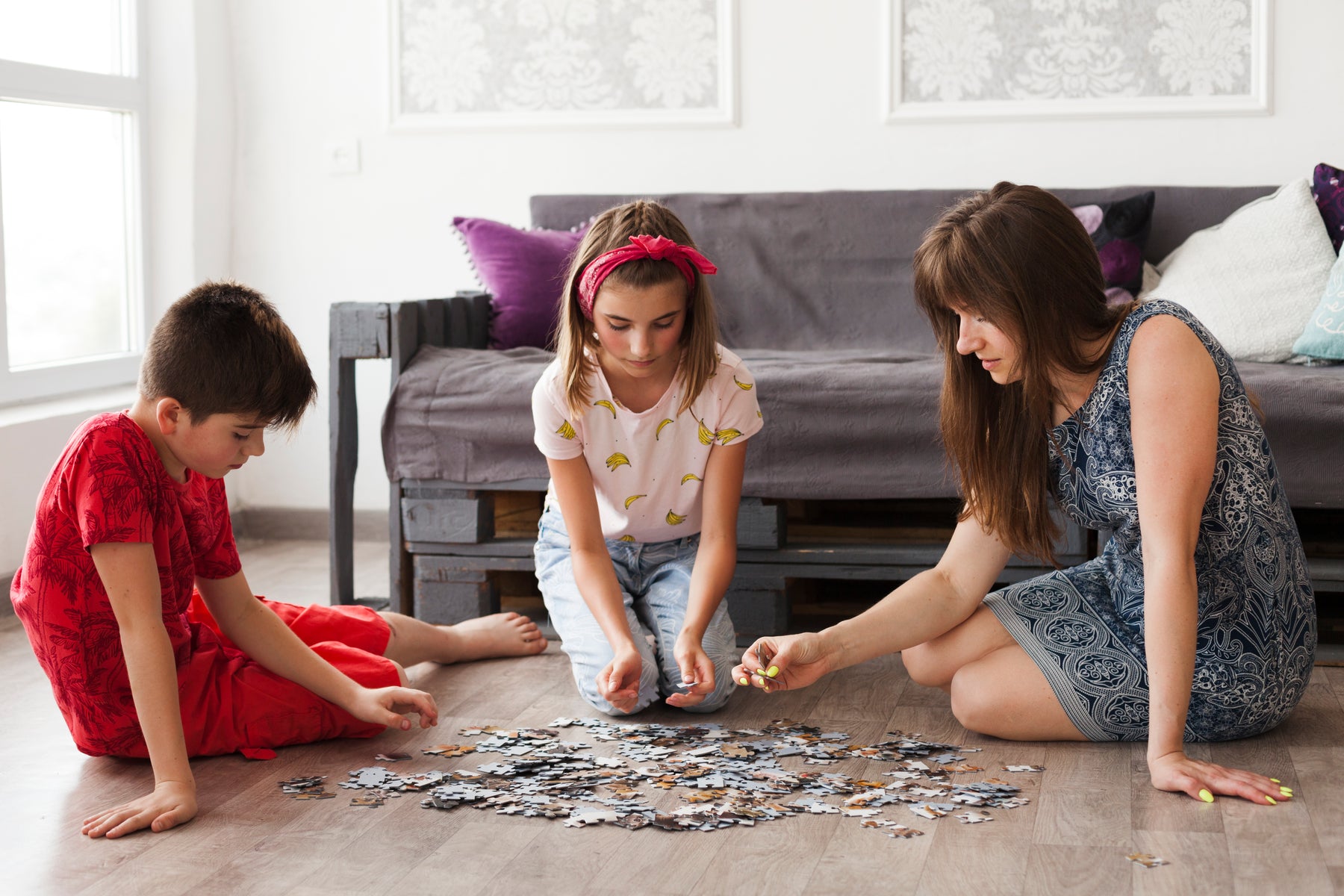
The Benefits of Jigsaw Puzzles for Children: Enhancing Growth and Development
Advantages of Jigsaw Puzzles for Children During Their Growth
Jigsaw puzzles have been around for centuries, and they continue to be a popular pastime for children of all ages. These puzzles come in a variety of sizes, shapes, and difficulty levels, making them suitable for children at different stages of development. But beyond being a fun activity, jigsaw puzzles offer numerous benefits that can support children's growth and development in various ways. In this blog post, we'll explore some of the advantages of jigsaw puzzles for children and how parents and caregivers can use them to support their child's learning and development.
- Enhance cognitive development
Jigsaw puzzles are a great way to enhance cognitive development in children. These puzzles require children to use a variety of cognitive skills, including problem-solving, spatial awareness, and critical thinking. As children work on a puzzle, they must consider the size, shape, and color of each piece and how it fits together with the other pieces. They also need to use trial and error to find the right combination of pieces and use their memory to recall where certain pieces go. Through these cognitive processes, children can develop their problem-solving abilities and enhance their spatial reasoning skills.
In addition, research has shown that puzzle-solving activities can increase the production of dopamine, a neurotransmitter that plays a critical role in learning and memory. This means that jigsaw puzzles can help to improve children's cognitive function and long-term memory.
- Improve fine motor skills
Jigsaw puzzles are also beneficial for improving children's fine motor skills. As children manipulate the small puzzle pieces, they must use their fingers and hands in a precise and coordinated manner. This can improve their hand-eye coordination, finger dexterity, and overall motor skills. Regular puzzle-solving activities can also help to prevent hand fatigue and promote better grip strength.
For younger children, puzzles with larger and simpler pieces can be a great way to introduce them to jigsaw puzzles and help them develop their fine motor skills. As they become more comfortable with the puzzles, parents can gradually introduce more complex puzzles with smaller pieces.
- Boost problem-solving skills
Jigsaw puzzles require children to solve a series of problems to complete them successfully. They must figure out how the pieces fit together, identify which pieces are missing, and determine where to place each piece. Through this process, children develop problem-solving skills that can be applied to other areas of their life, such as school work and social situations.
In particular, puzzles with irregular or non-uniform shapes can be especially beneficial for improving problem-solving skills, as they require children to think creatively and approach problems from different angles.
- Foster a sense of accomplishment
Completing a jigsaw puzzle can give children a sense of accomplishment and pride in their abilities. This can be especially true if the puzzle is challenging or has a large number of pieces. As children work through the puzzle and see their progress, they can feel a sense of satisfaction and confidence in their abilities. This sense of accomplishment can also help to boost their self-esteem and motivate them to tackle new challenges in other areas of their life.
Parents can support this sense of accomplishment by choosing puzzles that are appropriate for their child's skill level and encouraging them throughout the process. Celebrating their success and progress can help to foster a positive attitude toward learning and problem-solving.
- Encourage family bonding
Jigsaw puzzles are a great way for families to spend time together and bond. As parents and children work on a puzzle together, they can engage in conversation and strengthen their relationship. Puzzles can also be a fun and engaging activity for playdates or family gatherings. Through puzzle-solving, children can learn how to work together as a team and develop social skills, such as communication, cooperation, and sharing.
- Support language and literacy development
Jigsaw puzzles can also support language and literacy development in children. As children work on a puzzle, they can practice their language skills by communicating with others and describing the pieces they are working on. They can also develop their vocabulary by identifying and naming different shapes, colors, and objects depicted on the puzzle.
In addition, jigsaw puzzles with illustrations and images of animals, plants, and objects can help to introduce children to new concepts and ideas, and expand their knowledge of the world around them. This can support their curiosity and eagerness to learn more about the world.
- Provide a screen-free alternative
In today's digital age, it's becoming increasingly important for children to have screen-free activities that promote their creativity, imagination, and problem-solving skills. Jigsaw puzzles offer a great alternative to screen time, allowing children to engage in a fun and challenging activity without the distractions of electronic devices.
In addition, completing a puzzle provides a sense of accomplishment and satisfaction that can't be replicated by digital games or apps. By encouraging children to spend time completing puzzles, parents can help to promote a healthy balance between screen time and other types of play and learning activities.
Conclusion
Jigsaw puzzles offer a range of benefits for children during their growth and development. They can enhance cognitive development, improve fine motor skills, boost problem-solving skills, foster a sense of accomplishment, encourage family bonding, support language and literacy development, and provide a screen-free alternative to digital games and apps. By incorporating jigsaw puzzles into their child's playtime routine, parents and caregivers can support their child's learning and development and help them to develop important skills that will serve them well throughout their life.
When it comes to choosing a jigsaw puzzle for your child, it's important to select one that is both challenging and age-appropriate. That's why Brain Tree Jigsaw puzzles are the perfect choice for children of all ages.
Brain Tree Jigsaw puzzles are designed to stimulate and challenge young minds while also being fun and engaging to work on. They are made from high-quality materials, with durable and sturdy pieces that fit together perfectly. Each puzzle features bright and colorful illustrations that capture the imagination and keep children entertained for hours on end.
In addition, Brain Tree Jigsaw puzzles come in a wide range of themes and difficulty levels, ensuring that there is something for every child's skill level and interests. Whether your child is a budding astronaut, a lover of animals, or a fan of classic storybook characters, Brain Tree Jigsaw puzzles has a puzzle that will capture their imagination and inspire their curiosity.
So if you want to give your child the gift of learning and playtime all in one, look no further than Brain Tree Jigsaw puzzles. With their superior quality, engaging themes, and age-appropriate challenges, they are the perfect puzzle for children of all ages to enjoy and learn from.
Buy Now at : https://www.braintreegames.com/
